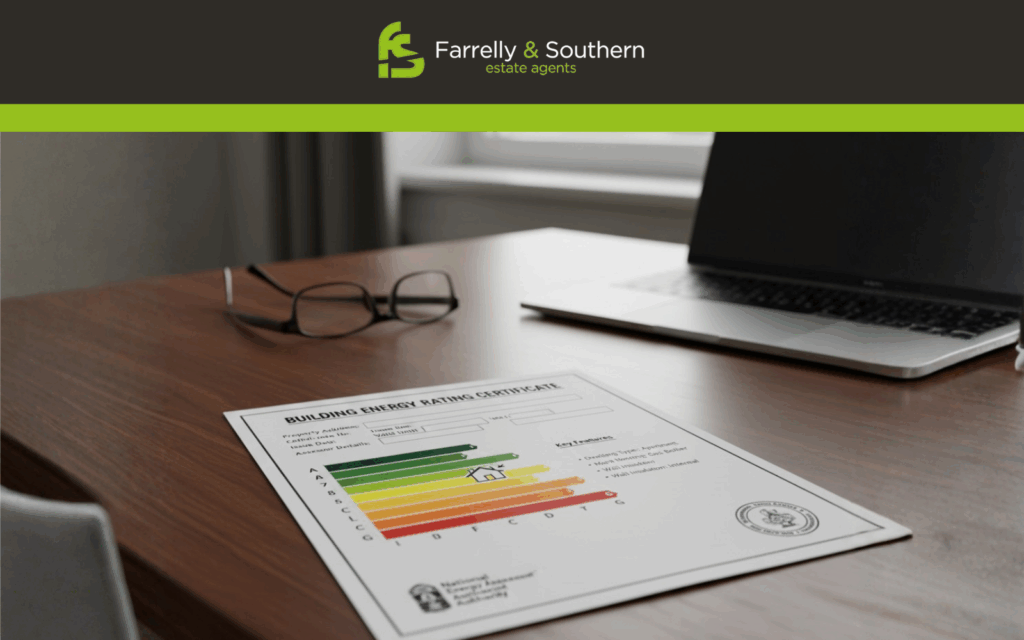When selling a house or investment property in Ireland, understanding capital gains tax (CGT) is crucial for your financial planning. This comprehensive guide explains how capital gains tax works, who needs to pay it, and what exemptions might apply to your situation.
What is Capital Gain and Why Does It Matter?
A capital gain occurs when you dispose of an asset for more than the purchase price you originally paid. In property terms, if you sell an investment property or second home for more than you paid for it, you’ve made a chargeable gain that may be subject to capital gains tax in Ireland, meaning you may have to pay capital gains tax on the sale.
The current rate of capital gains tax stands at 33%, which means you could owe a significant portion of your profit to Revenue. However, various reliefs and exemptions can reduce or eliminate your CGT liability.
Understanding Capital Gains Tax on Property Sales

Capital gains tax applies to the disposal of an asset that has increased in value, and you may have to pay capital gains tax on the sale if you make a profit. When selling a house that isn’t your principal private residence, you’ll need to calculate the difference between the sale price and what you originally paid for the property, plus any allowable expenses.
The tax year runs from 1 January to 31 December, and the timing of your property disposal affects when you need to pay CGT. If you dispose of property between January and September, payment is due by 31 October of that year. For disposals between October and December, payment is due by 31 January of the following year.
How to Calculate Capital Gains Tax on Your Property
To calculate CGT, you start with the sale price and deduct the amount you paid originally, along with allowable expenses such as solicitor fees, auctioneer costs, and improvement costs incurred during your years of ownership. The resulting figure is your taxable gain.
For properties acquired and disposed of before certain dates, indexation relief was available to account for inflation, though this was abolished for disposals after 31 December 2002. Your solicitor or tax advisor can help determine if this applies to older properties.
Who is Exempt from Capital Gains Tax?

The most significant exemption is principal private residence relief (PPR), which can help you avoid having to pay capital gains tax when you make a profit on your main home. If the property was your main home throughout your ownership, you’re generally exempt from capital gains tax, allowing you to make a profit without additional tax implications. This relief extends to married couples and civil partners who live in the property as their family home, potentially allowing them to make a profit without incurring capital gains tax.
However, if you’ve rented out part of the property or used it for business purposes, you may only qualify for partial relief. The relief calculation considers the proportion of time and space used as your principal private residence versus investment or business use.
When You Pay Capital Gains Tax After Selling
After selling a house or investment property, you must file a tax return and pay any CGT due within specific deadlines. For gains in a tax year, you’ll need to complete a CGT payslip and submit payment to Revenue.
If you make a loss on the disposal, you can carry this forward to offset against future gains. It’s essential to maintain proper records of all transactions and seek expert advice to ensure compliance with tax regulations, particularly if you may have to pay capital gains tax on the sale of your property.
Special Circumstances That Affect Your CGT

Investment Property Considerations
When you dispose of an investment property, you’re liable for capital gains tax on any profit made. The CGT on the sale is calculated using the market value at disposal minus the price you paid, plus any enhancement expenditure.
Retirement Relief Options
For those over 55, retirement relief may reduce or eliminate CGT liability when disposing of business or farm assets. This relief has specific qualifying conditions and limits that change periodically.
Separation or Divorce Situations
Transfers between married couples or civil partners are generally exempt from CGT. However, following separation or divorce, special rules apply regarding the disposal of the former family home and the availability of principal private residence relief.
How Much is Capital Gains Tax Going to Cost You?
To understand how much capital gains tax you’ll pay, consider this example: You sell an investment property for €400,000 that you bought for €250,000. After deducting allowable expenses of €20,000, your chargeable gain is €130,000, which means you may have to pay capital gains tax on the sale of the property. At the current CGT rate of 33%, your tax due would be €42,900.
Remember that you can deduct costs such as legal and professional fees, stamp duty paid on purchase, and substantial improvement costs from your gain calculation.
Essential Steps to Calculate CGT Correctly

Calculating your CGT bill requires careful attention to detail. Start by establishing the base cost, which includes what you paid for the property plus acquisition costs. Then add any enhancement expenditure that added value to the property during your ownership.
From the disposal proceeds, subtract these costs to arrive at your gain or profit. Don’t forget that certain expenses incurred wholly and exclusively for CGT purposes are deductible, potentially reducing your final liability.
Understanding Available Reliefs and Exemptions
Beyond principal private residence relief, several other reliefs might apply to your situation. These include entrepreneur relief for qualifying business assets and various deferrals for reinvestment in certain qualifying assets.
Each relief has specific conditions. For instance, to claim full relief under PPR, the property must have been your only or main residence, and you shouldn’t have been absent for extended periods except for permitted reasons like work requirements.
Making Your Tax Return and Payment

Once you’ve calculated your CGT liability, you must file the appropriate tax return. The deadlines are strict: if you make a gain between 1 January and 30 September, pay by 31 October. For gains between 1 October and 31 December, pay by 31 January the following year.
Failure to meet these deadlines results in interest charges and potential penalties. Many property sellers find it beneficial to engage a solicitor or tax advisor to ensure accurate calculation and timely submission.
When to Seek Expert Advice
Given the complexity of capital gains tax in Ireland, seeking professional advice is often worthwhile, particularly for high-value properties or complex ownership situations. A financial planning consultation can help you understand your specific CGT liability and identify legitimate ways to minimise it.
Tax advisors can also assist with situations involving multiple properties, foreign assets, or where you’ve made both gains and losses in the same tax year. They’ll ensure you claim all available reliefs and meet your compliance obligations.
Recent Changes Affecting CGT on Property
Since July 2017, several changes have affected how capital gains tax applies to property transactions. These include modifications to relief conditions and changes in how certain expenses are treated for CGT purposes.
The interaction between CGT and capital acquisitions tax has also evolved, particularly regarding inherited properties subsequently sold. Understanding these changes is crucial for accurate tax planning.
Practical Tips for Managing Your CGT Liability

Keep comprehensive records of all costs associated with your property, including purchase documents, receipts for improvements, and professional fees to accurately determine if you may have to pay capital gains tax on the sale. These records are essential when you come to calculate capital gains tax.
Consider the timing of your disposal carefully. If you expect to make a loss on another asset disposal, timing both transactions in the same tax year allows you to offset the loss against the gain.
For married couples and civil partners, consider which spouse should own investment properties based on individual tax positions and future disposal plans.
Conclusion
Understanding capital gains tax is essential when selling property in Ireland, especially if you may have to pay capital gains tax on the sale. Whether you’re disposing of an investment property or wondering if your main home qualifies for exemption, knowing the rules helps you plan effectively and avoid unexpected tax bills.
While CGT can seem daunting, proper planning and professional guidance ensure you pay only what’s legally due while claiming all available reliefs. Before making any property disposal decisions, consider consulting with tax professionals who can provide tailored advice for your specific circumstances, especially if you may have to pay capital gains tax on the sale.
Remember, tax legislation changes regularly, and this guide reflects current rules. Always verify current rates and regulations with Revenue or qualified advisors before making significant financial decisions regarding property sales.
Ready to Sell or Let Your Property?
Expert estate agents serving Kildare, Meath & Dublin
In a market obsessed with numbers, we obsess about the success of our clients
Visit Our Office
Farrelly & Southern Estate Agents
Suva House, Main Street
Maynooth, Co. Kildare
W23 D8P5
We specialise in sales, lettings, property management and valuations with a personalised approach that puts your success first.





